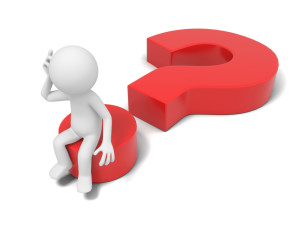Welcome to the Clarity Quiz!
Which of the following is most essential to an effective meeting?
- An agenda
- On time start and finish
- Assigned roles (e.g., time keeper)
- Ground rules (e.g., cell phones off)
- Assigned action items
- None of the above
Make your selection and then click “more” for the answer.

If you selected number 6, None of the above, you are correct!
People spend a significant portion of every workweek in meetings, many of them complaining about the wasted time and catching up on email while being ‘held captive.’ I know because I’ve received many of those emails, along with promises to call if the meeting ever ends, from employees at every level of Corporate America.
Meetings are perennial objects of complaint in companies everywhere. And yet, if you Google “effective meetings,” you will be encouraged to focus on all the wrong things while learning next to nothing about the one factor that is essential to a truly effective meeting.
Let’s start with the agenda. An agenda guarantees nothing. Worse, the agendas most people think are the best just provide the most detail as to how much time is going to be wasted and by whom:
- 8:00 – 8: 15 Discuss the marketing plan (Tom)
There is nothing about this agenda item that ensures those 15 minutes will be worthwhile.
Starting and ending on time is fine, though personally, I would rather finish early. And starting and ending on time does not mean the intervening time was well-spent.
Assigned roles. Another red herring. A really aggressive time keeper determined to keep things moving can do no more than decrease the amount of wasted time slightly. A thorough note taker will create ample evidence as to how much time is wasted, how, and by whom. A focused note taker, determined to record only the important points, may finish with a blank sheet.
Ground rules also miss the boat. Being civil and focused while you wander around Tom’s marketing plan is not a bad idea, but focusing attention on or establishing the ground rules is often just another way to waste time.
Assigned action items are a good idea, but, if you’ve been to as many meetings as I have, this can amount to little more than a fishing trip: “What should we do next?” And the action items may include wonderfully worthless activities such as schedule the next meeting, type up the meeting notes, and meet with those who missed the meeting.
So while none of these suggestions is bad, what are they all missing?
The one essential component of a truly productive meeting is to make it crystal clear what needs to be different when the meeting ends. What decisions must be made, options identified, plans established, action items assigned, lists brainstormed, data collected, gaps filled, risks uncovered, or problems solved? Something has to be clearly different.
Do not “Discuss the marketing plan.” Discuss is what I call a “Treadmill Verb™.” Like running on a treadmill, you can discuss forever without ever arriving at a destination. Why are you even thinking about discussing the marketing plan in the first place? Do you need to agree that it is complete? Do you need to identify holes or bad ideas? What step will allow you to proceed to the next step? How will you know when you are finished with this topic on your agenda?
Review and report are also ‘Treadmill Verbs™’ that frequently appear on agendas. When reviewing or reporting, how do you know when to get off the treadmill?
Some agendas don’t even use verbs. They just list topics. There are usually a few extroverts who will run with almost any topic. They might have wonderful and interesting ideas, but once you’ve opened the barn door, it can be mighty tough getting everyone back into the barn.
One of the simplest ways to avoid Treadmill Verbs™, to ensure productive results, and to help participants contribute effectively is to require that every agenda item be a question. For example:
- Where are the risks in this plan?
- How can we best obtain better feedback from our customers?
- What are all of our options for dealing with this situation?
Thus, make your meetings short and powerful by determining what must be different when the meeting is over. How will you know when you are done? What questions require answers?


Comments are closed.